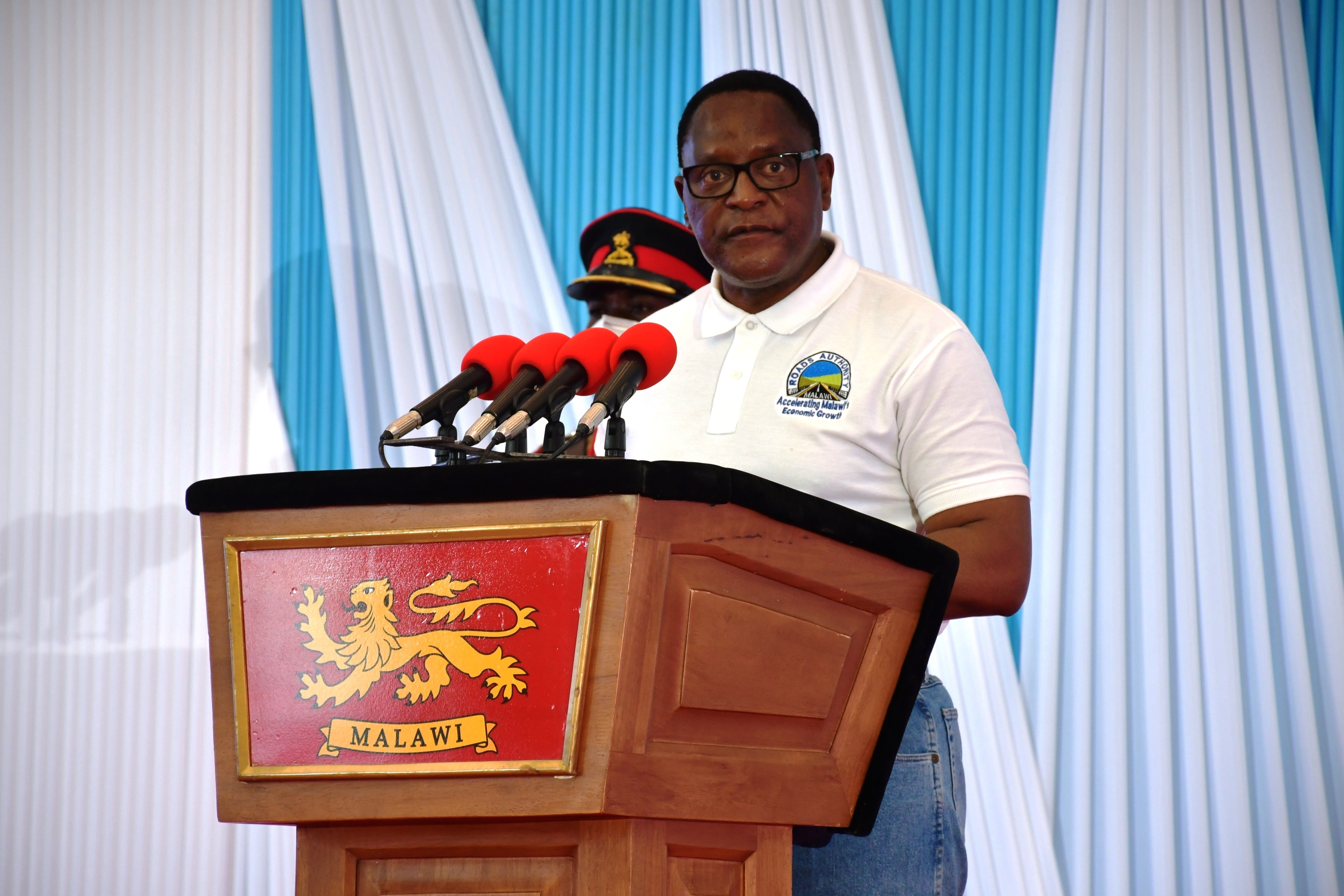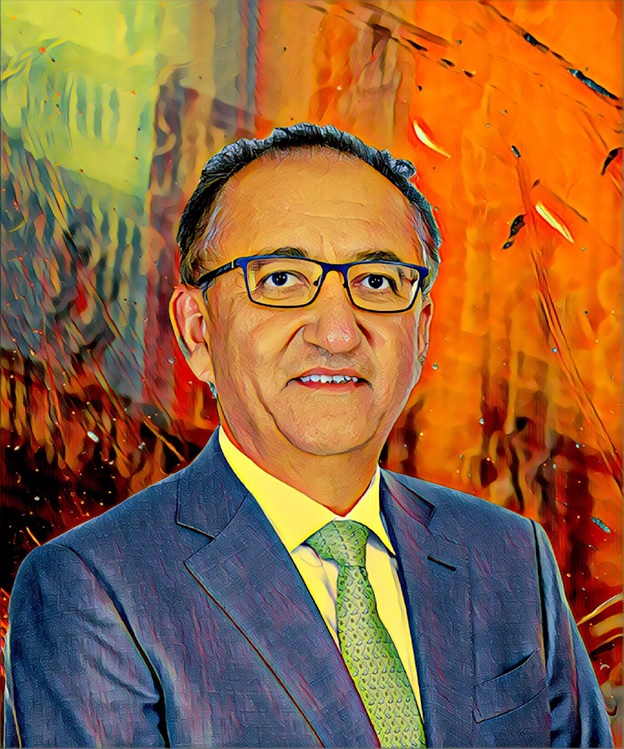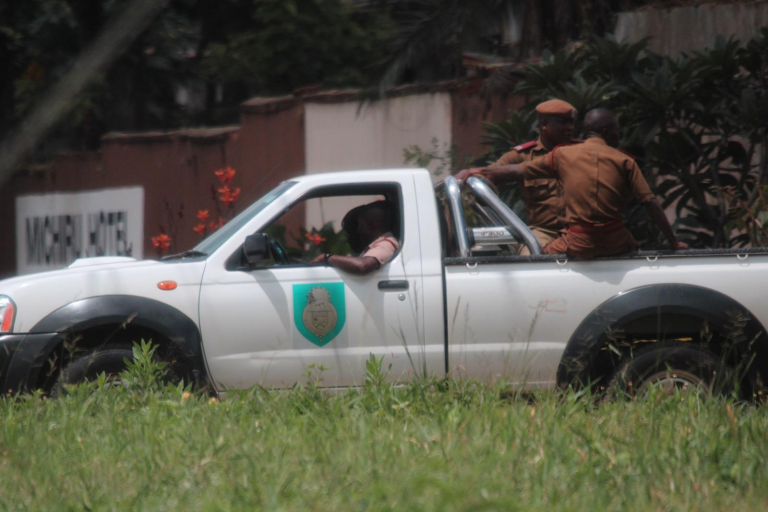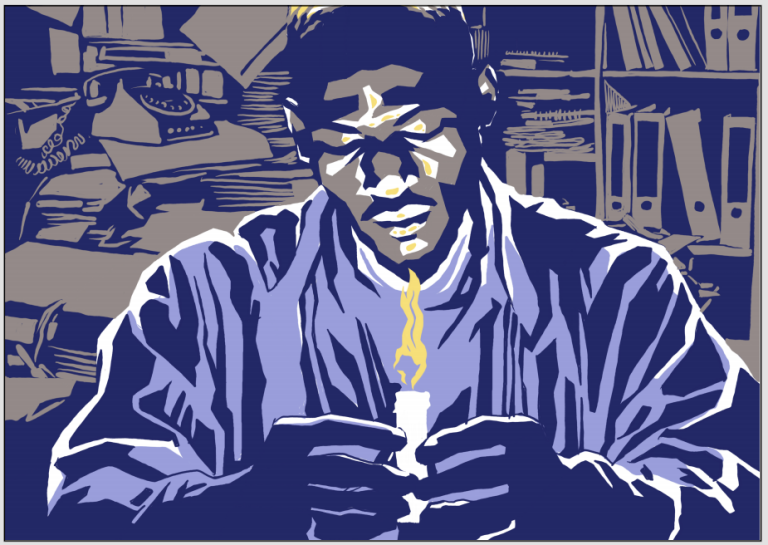n February 2020, Malawi amended its rigorous anti-cannabis laws to pave the way for the legal cultivation and export of cannabis, while maintaining the prohibition of Indian hemp and other recreational uses of cannabis.
The tobacco industry, the mainstay of the economy as far back as 1893, is falling. And now the government wants it replaced with other cash crops by, at least, the year 2030. President Lazarus Chakwera has repeatedly said the days of reliance on tobacco are over.
In 2021, tobacco earned less than $200 million, similar to the previous two years but well below previous annual earnings that used to top $350 million. Nonetheless, tobacco still constitutes 60 per cent of Malawi’s foreign exchange earnings and 13 per cent of the country’s GDP.
“We need to diversify and grow other crops like cannabis, which was legalized last year for industrial and medicinal use,” Chakwera said in a recent State of the Nation address.
By turning to cannabis, Malawi did not break any new ground as many countries worldwide have now legalized or relaxed laws on cannabis, including Lesotho, Zimbabwe, and Zambia in Southern Africa.
In a bid to market the new industry, in November 2021, Agriculture Minister Robin Lowe invited former world heavyweight boxing champion Mike Tyson—who has cannabis investments—to become the country’s official cannabis ambassador.
The United States Cannabis Association (USCA), a local company currently licensed as the sole off-taker of cannabis, is said to facilitate engagement with the boxing legend.
However, USCA plays a complex, but central role in an industry now littered with grower anxiety and is subject to accusations of arm-twisting and defrauding farmers while using political connections and underhand tactics to silence the growers—including poor women.
The growers say after spending millions of hard-earned money to meet agricultural and registration requirements to participate in the industry, including payments to USCA, their hopes are shattered after the company failed to deliver seeds required for farming.
USCA appears to be sailing in dire financial straits, and the growers say, after neglecting its contractual obligations with the farmers, the company is embroiled in a campaign to silence them.
The Platform for Investigative Journalism (PIJ) sent questions to USCA CEO Wezi Ngalamira. She did not respond to the questions.
The change in the cannabis law legalized the cultivation of industrial hemp and medicinal cannabis, with the Cannabis Regulatory Authority (CRA) created to police the new industry: issuing licences; permits for scientific research, ensuring cannabis is grown under strict production practices (among them non-involvement of children and preservation of the natural environment), and compliance with quality standards regarding soil, fertilizers, and pesticides used in the crops.
Those contravening the law could face as much as 25 years imprisonment.
The CRA originally set $10,000 as the licensing fee for those seeking to cultivate medicinal cannabis and $2,000 for industrial hemp, which farmers immediately decried as prohibitive.
Unlike tobacco or illegal Indian hemp, which is grown in open airfields, industrial hemp and medicinal cannabis require greenhouses because it is an improved variety imported from Spain, which needs special conditions for cultivation, raising the costs higher.
As such, growers formed cooperatives to merge their resources.
USCA was the only registered off-taker of the cannabis. Hence, all cooperatives were obliged to have a business relationship with the company.
That relationship, too, had its financial obligations; cooperatives will pay fees for registration, training, and purchase of seeds from the company, according to agreement forms, minutes of meetings, bank deposit slips, letters, and other evidence PIJ has accessed.
According to the Cannabis Growers Association (CAGA), a representative body of majority cannabis cooperatives, fees that cooperatives were to pay to USCA were compulsory and ordered to be paid in advance.
By April 2022, the CRA had issued 86 licenses to 35 cooperatives and companies to operate in the sector, mostly to cultivate, process, and store Cannabis.
For the farmers, it was no small change either. A Cannabis Cooperative at Malingunde in Lilongwe, for example, after paying 1.2 million kwacha to CRA as a licence fee and 300,000 kwacha as a non-refundable application fee, paid K60,000 to Chitedze Research Station to test the soil; paid USCA 3.4 million kwacha for seeds; 700,000 kwacha for training and 100,000 kwacha for registration. The cooperative also spent 2.1 million kwacha to prepare the land for agriculture.
On average, a single farmer cooperative spent over 7 million kwacha to join the industry, no small change for a country where most farmers and a majority of the country live on less than a dollar a day.
“USCA was supposed to give us seeds by December 2021, meaning we could have harvested in March 2022. Then they said they will give us in January 2022. Now we have had to cut our relationship. They have not refunded our money; we have receipts and agreement forms. Now CRA wrote to us that USCA does not recognize us,” says Taurai Beni, a member of Malingunde Cooperative.
It’s not an isolated case. According to CAGA—the representative body of cannabis cooperatives— USCA has failed to meet its commitments to only two cooperatives.
Now the company refuses to refund the growers their money and disowns any agreements.
“Only two groups have been granted seeds, but those two have no market after harvesting,” says Neba, a member of Msepa Cannabis Cooperative in Kasungu.
When the growers took their disappointment to a WhatsApp forum that includes members of all cooperatives and USCA officials, the company’s security officers reportedly started harassing those pushing for honouring the contracts, including through late-night calls, according to the growers.
A recording of one such call—made by a person identifying himself as Chirambo, head of security and intelligence at USCA—has been shared with PIJ.
CAGA sought redress through CRA and the Ministry of Agriculture but says both failed to help—leading to fears among cooperatives that USCA has the backing in the corridors of power.
Matters came to a head in January this year. Angry with the authorities’ reticence, the growers protested publicly to draw attention to their misfortunes.
After notifying city officials of their planned action, in scenes more in tune with stifling political protests than poor helpless farmers’ SoS, police brutally suppressed the demonstrations, assaulting CAGA members, bundling them into police vehicles before later releasing them from police custody without any charges, according to growers who participated.
“I was among those arrested. Some members were assaulted during the incident. A government representative came to hear us and promised to address our concerns,” says Neba.
The cooperatives believe senior government officials have interests in USCA. They plan to conduct further protests to put the spotlight on the matter, an allegation also made by other industry players who refused to be named.
“We don’t have evidence, but we hear of people, including some very close to the president, involved in the cannabis business. We can’t investigate it, but actions speak louder than words,” adds Neba.
According to minutes of a 6th December 2021 meeting CAGA held with USCA (represented by its Technical Manager, Mr. Milanzi), every cooperative interested in being affiliated with USCA had to pay K3,000 per member per year after filling out forms.
The agenda of the meeting was four-fold: Seed, Bank loan; Time for providing the seed and money; AOB, under which loan schemes for the farmers from banks and other financial institutions in conjunction with USCA were discussed.
The minutes further reveal that USCA told the committee that it had six partners, AGRI-ZYDA, Wilbrow, and Zyna Civil Engineering, “who had different roles to play within the production chain.”
The growers were told to make payments for registration into the account of one of the partners- AGRI –ZYDA. The farmers grew suspicious.
The growers were also informed of other benefits for cooperatives operating under USCA: support for value chain processes, including that seed for soya, groundnuts, beans, rice, and pigeon peas “was already in stock ready for distribution.”
According to one of the agreements with one of the cooperatives we have seen, USCA committed to buying a cannabis variety known as CBD Passion at a price between US$50 to US$80 per kg, which could be revised subject to market trends. It would also buy grain between US$1.5 to US$2 per kg.
Although it does not produce the seeds, USCA promised to deliver them. Invegrow, situated off Kasiya Road in Lilongwe, is the company doing so. Run by Tanya Clarke, a British entrepreneur, Invegrow completed seed trials in 2018 and was one of the groups that advised the government on drafting the Cannabis Bill.
Invegrow processes hemp products such as paper, bricks, and cosmetics in Malawi. “The next step for the company will involve work with the government to investigate local varieties, as imported seeds were used in the trials,” Clarke said in an interview at the company’s complex stretching a good 31 hectares that could house several soccer fields but now has 33 greenhouses, state-of-the-art laboratories, processing fields, and other structures. If the country exports oil, garments, and other cannabis products to join a multibillion global industry, the imposing structures at Invegrow tickle you to believe the country is already on its way.
It is at Invegrow where USCA has sourced seeds it has shared with a few cooperatives it still has a working relationship with. The precise number of the cooperatives that have benefited is not clear. Most likely, it is only two!
The trouble is USCA has struggled to pay for seeds produced by Invegrow–despite the farmers paying for it already.
Initially, Invegrow loaned USCA seeds to be provided to two cooperatives, Mchinji Cannabis Cooperative and Women of Vision in Kasungu. USCA only paid after failing to meet several payment deadlines, according to sources familiar with the transactions.
Despite its name, USCA is not owned by the United States government nor registered in the USA. It’s headquartered in Lilongwe’s low-density Area 9 residential township, where bodyguards donning black suits and dark-tinted sunglasses, carrying metal detectors, usher visitors through its reception.
The company, though, appears to be sailing in troubled financial waters. In November, the company had not yet sorted out its finances to support the operations, including purchasing the seeds. It still has not.
In an 8th November 2021 letter to the government, sourced by the PIJ, the company informs the government of its challenges accessing funds from investors due to questions over market availability.
“However, our investors want to be certain about market availability, especially in South Africa, as Malawi is yet to get its international certifications to enable its export to the USA and other selected European countries. Under this arrangement, we estimate to cultivate on a pilot over 20 hectares of CBD Passion Cannabis Flowers, producing about 25,000 kgs (25 tonnes) of CBD Passion (estimated at 1,250 kgs per hectare). We will also produce about 60 tonnes of Grain Variety (Futura 75) on over 30 hectares of land, producing (an estimated 2,000 kgs per hectare). Our investors are ready to expand their investment subject to the availability of the market. We can always discuss how we can work together at your convenience. For now, what is needed is crafting the contract to assure the investor of the market certainty,” wrote CEO Wezi Ngalamira.
The identity of the investors is not known.
Boniface Kadzamira, a former member of parliament who famously lobbied for the passing of legalization of cannabis and is now CRA Board Chairperson, refused to comment on the matter when contacted.
“The best person to address the matter is our DG,” said Kadzamira. “Secondly, you must speak to USCA for a balanced story.”
………………………………………………………………………………………
Travelling some 61 kilometres east of Nkhamenya Townships, in hilly terrain on the banks of Nkhotakota wildlife reserve, several farmlands bearing various traditional crops such as maize, cassava, and soya beans cover large swathes of land. But they are not the main cash crop for this area; here, something less conventional and still much illegal is the main cash crop.
The PIJ has been granted rare access to the Chamba fields following a request filtered through a network of local community leaders. Our first contact, a journalist in Mzimba, helps us identify a local councillor who knows the growers.
The group of farmers has been waiting for us the whole day. We are surprised to meet around 15 men and women, all claiming to be growers of Chamba but now seeking to join the newly legalized cannabis industry. They have formed a local cooperative and are waiting for seeds to start the new trade.
As we travel to see the closest Chamba field, some 30 kilometres from the trading centre, we learn how the underground Chamba industry operates.
For decades, the community has been cultivating the still illegal Indian hemp, using the thick forests, difficult-to-navigate terrain, and remoteness of the area to avoid the state’s intrusion. Often, agents of the state, chief among them the police, are bribed handsomely to stay away or allow the contraband, once harvested and on its way to its final destination, free passage.
But, there is always the odd police operation to attempt to disturb the industry, and when that happens, the community says it unleashes cold-blooded war on the police.
The community is heavily armed with traditional weapons such as homemade guns, spears, and machetes to wade off any police invasion. Makeshift bridges are also constructed on rivers and streams, ready to be destroyed at the raising of alarm of police intrusion.
“Last year, police officers using a personal car came to confiscate Indian hemp. We chased them and torched the vehicle they were using. This is our livelihood,” said one farmer as he ushered us to his field of Chamba, or Malawi Gold as it is famously known the world over.
But the majority of the time, the industry operates smoothly. The police stay away.
The buyers are the ones who transport the contraband from the farms after contacting the growers through middlemen who have contact with both buyers and sellers. The middlemen get a commission from each deal. “Not everyone has the contacts; we work on trust.”
The buyers have links with police and would alert the police ahead of each transfer to ensure no roadblocks are an impediment. “Of course, they give them money,” says a farmer.
The farmers themselves are handsomely rewarded. The farmers are paid cash and in-kind: battering their harvest with vehicles (depending on the volumes), guns, Television screens, and other high-value merchandise.
The cash, of course, is more than any cash crops can fetch. The field we are visiting is just slightly bigger than 30×40 metres. The owner estimates that he will make 200,000 Kwacha out of it. He also harvests two times a year, unlike in other cash crops, so in the small field, he is making 400,000 Kwacha annually. “There,” he points at the vast forest known as Nkhotakota Wildlife Reserve, “are bigger fields whose owners make millions per harvest,” says the farmer.
According to the locals, foreign nationals from Zimbabwe, South Africa, Tanzania, and other countries are involved.
In March this year, police arrested Allan Ntata, a former legal advisor to President Bingu wa Mutharika, for attempting to transport Cannabis sativa (Chamba) to Australia via Chileka Airport in Blantyre. He was later convicted by Chisenjere Magistrate Court and fined K80,000 for being found in possession of cannabis Sativa and K20,000 for attempting to export it. He promptly paid. The alternative to the fines were 12-month and 6-month jail sentences, respectively.
The Chamba growers want a share of the newly legalized cannabis business, but ultimately, they prefer to legalise Malawi Gold. “It’s easy to grow. You don’t need a greenhouse, you don’t need fertilizers, seeds are readily available,” says one of the farmers.
Such calls for ultimate legalization of all forms of cannabis are echoed on the banks of Lilongwe River on a rainy Saturday morning when PIJ attends a worship service for a branch of the local Rastafarian gathering, a key advocate for the legalization of industrial hemp.
The role of Chamba in the Rasta’s rituals was evident from start to finish. As faithful after faithful arrive at the congregation centre on the banks of Lilongwe River, then nearly full following heavy rains in the preceding days, with rounds of showers still pouring on the holy place and surrounding maize gardens, members first circle around a bonfire made of firewood from trees and Chamba stems.
As the service proceeds, members smoke as they praise the creator, Jah Rastafari. During ‘offerings’, members then produce portions of weed varying in size based on the member’s ability that day to be shared with each congregation member during the Rastafarians’ communion.
The Rastafarians also want to invest in the new industry but say the registration fees are prohibitive.
“For years, we, the Rastafarians were the only ones who were pushing for the legalization of cannabis, but now they legalized it but made it so difficult for us,” says Ras Patrick Galawanda, an elder at Lilongwe Nyahbinghi Theocracy Reign.
A group of farmers fortunate to obtain industrial hemp seeds and have now harvested them says USCA is yet to buy the flower, raising questions about the company’s intentions.
Interestingly, some farmers tell PIJ they have resolved to invest in Malawi Gold, the illegal variety.
Kadzamira, the CRA chairperson, has also called for legalising all varieties of cannabis, including currently illegal Indian hemp. After successfully overturning decades-long mistrust and disdain for cannabis, to at least get legalization for industrial hemp and medicinal cannabis, getting Malawi Gold legalised is a tall order. Bringing order to the newly legalised industry first appears to be a more urgent task.
This story was produced by The Platform for Investigative Journalism (PIJ-Malawi) in partnership with Samuel Misteli, Africa correspondent for the Swiss newspaper Neue Zürcher Zeitung.
PIJ is a Malawian non-profit media organization focusing on cutting-edge public interest independent journalism. The Neue Zürcher Zeitung is one of the preeminent news sources in the German-speaking world, with a tradition of independent, high-quality journalism reaching back over 200 years.

.jpg)





